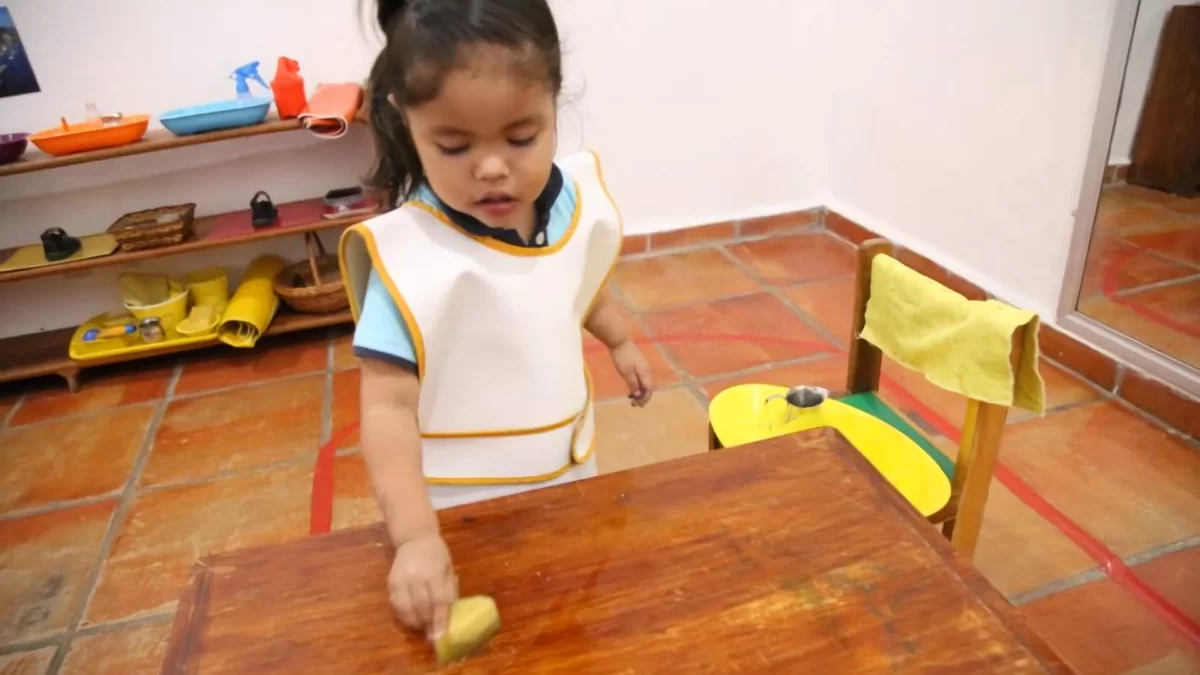In these times of re-registration, in the midst of a global crisis like the one we have had to live through, many doubts come to mind when we think about resuming the routines so necessary for the healthy development of children.
Schools and day care centers across the country are desperately trying to figure out how the sanitary measures could work. With no timetable for when the Covid-19 crisis will end, it's not just a matter of adhering to government guidelines, but allaying parental fears now and in the future.
Many people will wonder how these environments could be compatible with the prevention of infections. However, the authentic Montessori education that we offer focuses on child-directed learning based on the original approach devised by Maria Montessori, it could offer some surprising solutions. In this blog we describe five ways in which Montessori education can help maintain the well-being of our children:
Reason # 1 – Spacious and well-ordered environment
Montessori classrooms offer an orderly and engaging environment designed specifically for children at every stage of their development. In our Montessori schools, we are lucky that our children enjoy large spacious rooms with fewer students per room, but careful use of space is also key. Our classrooms are meticulously cared for, which encourages children to take care of them as well. Children put learning materials back on the shelf after they've been used, so it would only be a small step to encourage children to clean the materials after use as well.
Reason # 2 – Independent and confident children
A central part of the Montessori approach is the focus on child-directed learning, which fosters children's independence and confidence. Our children are given greater freedoms and responsibilities, which encourages them to take responsibility for their actions and be considerate of others, making it easier for them to comply with social distancing measures and to be more emotionally prepared for change. The focus on independence of mind has also been very helpful to the remote learning that we have offered in this time of “lockdown”.
Reason # 3 – Hygiene and personal care
From an early age, our children are encouraged to practice good hygiene and care for themselves. They remove their outdoor shoes and slippers on arrival and hang their own coats and bags. Children take turns setting up lunch and snack tables and cleaning up after meals. They are responsible for washing their hands and face as needed after eating, using the bathroom, or playing outside or with art supplies. As the Covid-19 crisis unfolded in March, we further increased our emphasis on good hygiene with more frequent handwashing, and our children will be ready to continue these practices and take additional steps as needed.

# Reason 4 – Outdoor Learning
One of the main pillars of the Montessori approach is to focus on integrating nature into children's daily learning throughout the year. At our school, children are free to work outside as much as possible. Our kids are specifically engaged in outdoor activities like gardening, sports, or fixing a broken bike, but they are also encouraged to take their learning outside into the great outdoors, like working with math, reading, art materials, or playing a game with others. kids. Since children already view our outdoor spaces as learning zones, as well as places to play, an increased focus on outdoor learning will be relatively seamless.
Reason # 5 – Calm and considerate behavior
Many visitors to our school are surprised by the calm atmosphere they encounter and our children's ability to concentrate for long periods of time. This atmosphere is not a happy accident, but a carefully cultivated way of behaving and interacting with others. Our authentic Montessori approach includes a focus on “Grace and Courtesy” – this is where we practice and model behaviors like walking around the room, sharing materials, or apologizing. From the age of 2 and a half, our children use breakable plates and glasses and learn to be careful with them; children carefully navigate the room. This increased self-awareness and self-control will make social distancing more feasible even with the youngest children.
Regardless of what the future holds, the happiness and safety of our children will always be our first priority, but we are confident that your Montessori education will help them weather these extraordinary times.
Original article in English published in María Montessori Institute
https://www.mariamontessori.org/
